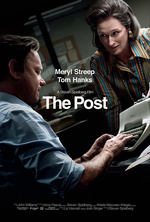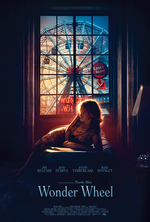Film Screening 20th April, 2018

The Post
7:30 PM, 20th April, 2018
No Guests
- M
- 116 mins
- 2017
- Steven Spielberg
- Meryl Streep, Tom Hanks, Sarah Paulson, Bob Odenkirk
Commissioned in 1967 by the US military and completed in 1969, “The Pentagon Papers” was a report on relations between Vietnam and the US from the end of WWII onwards.
One of the Papers’ authors, Daniel Ellsberg, realised his work contained proof that the US government had systematically lied to its people – and to itself – about what it had spent the last decade doing in Indochina and he went to the press. The Nixon administration tried to quash the story, but the New York Times and The Washington Post resisted, with the case ending up at the Supreme Court.
More so than the recent Spotlight, with which this film shares a co-writer, The Post is about the people at the newspaper who are breaking the story more than the story itself: in particular, how the paper’s publisher (Streep) and editor (Hanks) cope with the crushing pressure they are under.
The story about the people breaking the story is in the capable grasp of Steven Spielberg, who knows how to make the politics and the narrative crystal clear to outsiders, but more importantly allows his actors to give performances one notch larger than life, but no less natural.
Henry Fitzgerald

Wonder Wheel
9:36 PM, 20th April, 2018
- PG
- 101 mins
- 2017
- Woody Allen
- Kate Winslet, Jim Belushi, Juno Temple, Justin Timberlake
Set in the Brooklyn suburb of Coney Island in the 1950s under the shadow of the ‘Wonder Wheel’ Ferris wheel (shown once at the start and referenced never again), this play – sorry, film – involves four main characters.
There’s Carolina (Temple), arriving in town to try to make peace with her estranged father Humpty (Belushi), a crude but harmless oaf of a carousel operator, who has since remarried Ginny (Winslet), who is secretly having an affair with the lifeguard Mickey (Timberlake), who is helpfully narrating all of this for us.
The result is not Woody Allen’s best work, but it’s still very watchable. And if you need to know more about which of his fifty other movies this most resembles, think Blue Jasmine for the watered-down Tennessee Williams stagecraft feel (and like vodka, Tennessee Williams needs to be watered down – hosed down, in my opinion); or Match Point in the way a casual, spur-of-the-moment bad decision can have enormous consequences.
Henry Fitzgerald